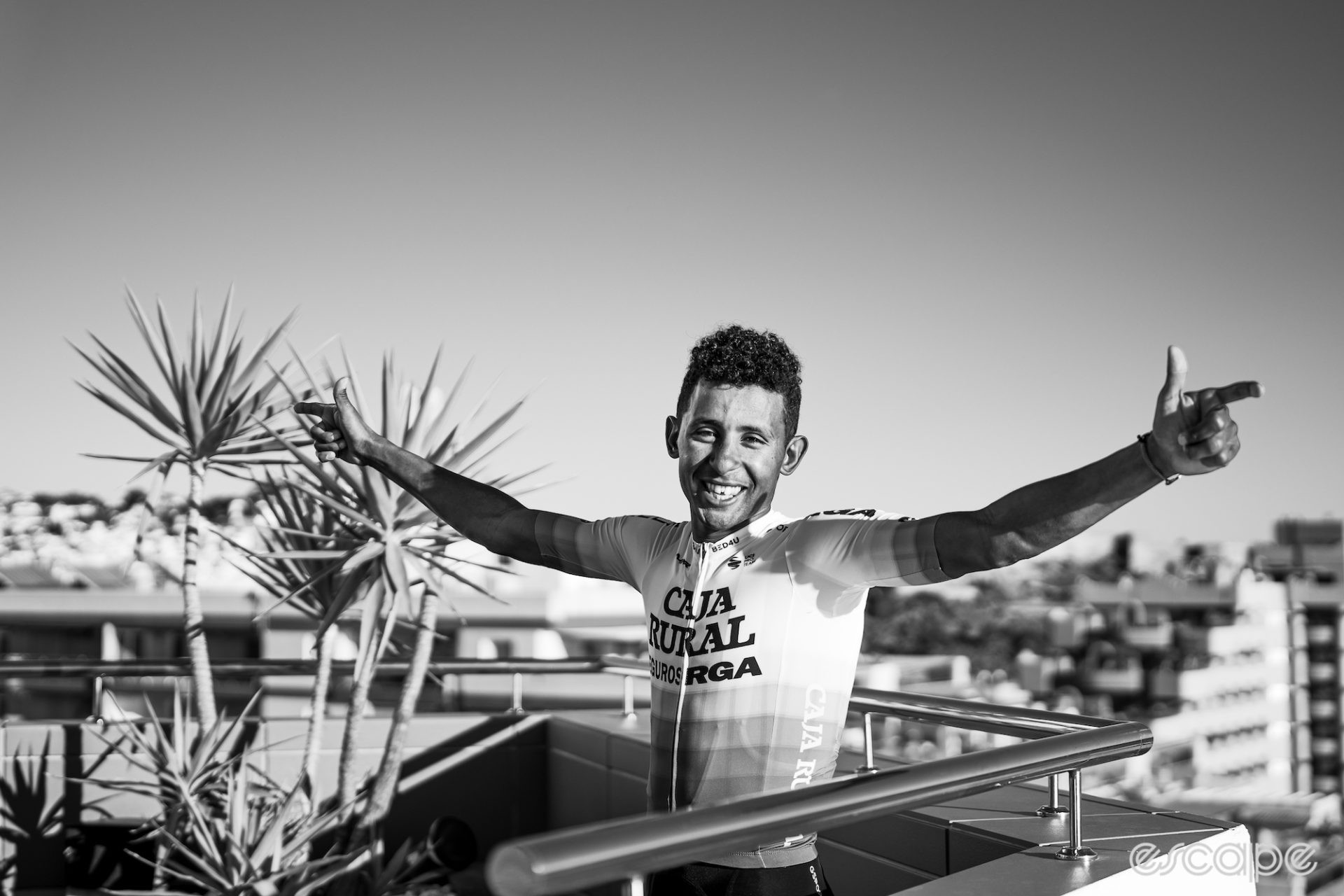Did we do a good job with this story?


African riders face massive challenges to become a pro. Mulu Hailemichael risked his life to stay one.
Hailemichael's wide smile is a trademark of almost every picture of him, on the bike or off. Photo courtesy Caja Rural-Seguros RGA.